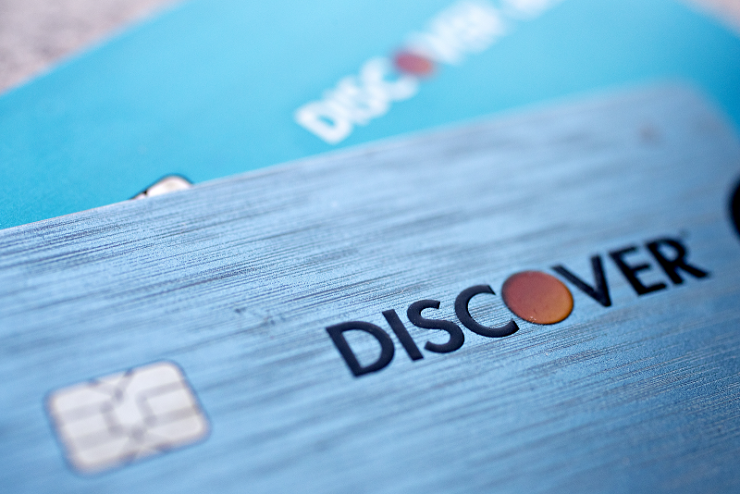Discover saw strong growth of its receivables during the third quarter, with overall loans up 17% from the same quarter a year earlier. Personal loans rose 11% during the quarter, which Discover CEO Roger Hochschild attributed to sharper underwriting discipline.
Inflation was a double-edged sword. Any impact it had on growing card balances was offset in part by the rewards the River Woods, Illinois-based credit card company offers as cash back.
"Strong sales also drove higher reward expenses," John Greene, Discover's chief financial officer, told analysts Tuesday during a conference to discuss third-quarter earnings.
"Consistent with the prior quarter, our rewards rate increased 3 basis points year over year, driven by substantial growth in new accounts, increasing the cost of our cash-back program. Year-to-date, our rewards rate is up 2 basis points, consistent with our expectation of 2 to 4 basis points of annual reward rate inflation," Greene said.

Discover also recently increased its use of advanced analytics tools, and during the current economic cycle is applying "heavily manual processes" where necessary to verify employment and other details, Hochschild said.
Student loans increased 4%, a phenomenon Hochschild said was unaffected by the federal government's proposed student-loan forgiveness program.
The company's credit card receivables rose 19% year over year, while credit card sales were up 15% during the quarter, compared with 20% growth for the first half of the year.
Credit quality remains fairly healthy, as Discover's net charge-offs for the quarter were 1.7%, up 25 basis points from a year earlier but down slightly from the previous quarter. The company expects net charge-offs to be between 1.8% and 1.9% for the full year, driven by lower-than-expected credit losses.
Discover has increased its loan loss allowance by $304 million and tightened new-account underwriting criteria slightly during the third quarter to offset rising risk, according to Hochschild.
"We tightened some of those segments that will be most volatile in a downturn," he told analysts.
Discover grew its new credit card accounts by 22% from the same quarter a year earlier, and strong card use has continued through October, Hochschild said. But spending in travel and higher-ticket consumer products has slowed from extremely high levels during the summer, he said.
Operating expenses were up 17% year over year, primarily because of higher marketing costs, more cash-back rewards payouts and increased headcount. Discover hired 75 professionals to staff its new analytics center in Chicago to improve underwriting and customer targeting capabilities. The company is also hiring 2,000 more loan-servicing agents to manage the expanding portfolio.
Inflation contributed between 200 and 250 basis points of sales growth, driving up the cost of Discover's cash-back rewards program by 2 basis points.
Discover's stock buybacks remain suspended, but the company expects to resume share repurchases before the end of the year, implying the risk of possible regulatory action has abated.
The company put its stock buybacks on hold
"Our temporary pause on share repurchases remains in place, but we hope to resume share repurchases before year-end," Greene told analysts.
Discover reported net income of $1 billion during the quarter that ended Sept. 30, down slightly from the same period a year earlier due to higher expenses, and revenue net of interest expense of $3.5 billion, up 25% over a year earlier.
The post-pandemic expansion of the buy now/pay later market has not fazed Discover, Hochschild said in an interview after the earnings call.
"We had no plans to offer BNPL loans and have not seen its impact on our revolving card balances," he said, adding that he speculates a lot of BNPL loans targeted subprime borrowers, whereas Discover targets middle-to upper-middle-income customers.
Discover has reaped some benefits from the BNPL market by availing its card network acceptance rails for BNPL fintechs like Sezzle to connect to merchants, but Hochschild said the company doesn't disclose how much specific network partnerships contribute to profits.
Overall, Discover's call with analysts provided "generally soothing words" on credit and optimism about the potential resumption of stock buybacks in the near future, Brian Foran, senior analyst at Autonomous Research, said in a note to investors Thursday.






